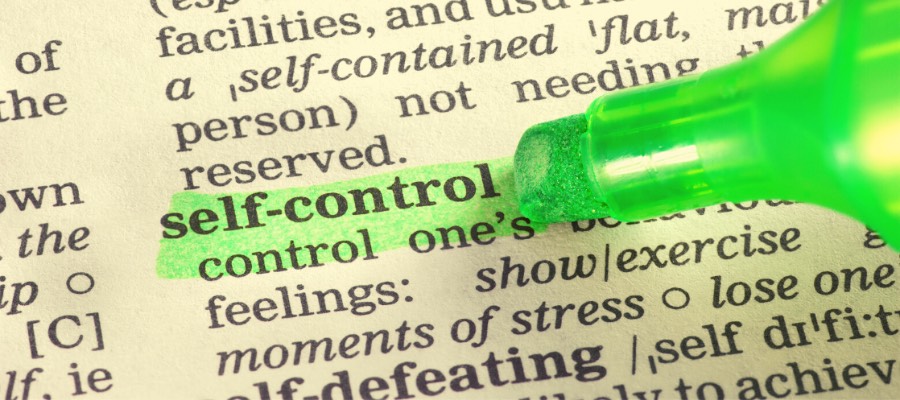The views expressed in our content reflect individual perspectives and do not represent the authoritative views of the Baha'i Faith.
Is it easy to feel happy every single day? Or does this require a new way of thinking and behaving?
RELATED: Spiritually and Psychologically Overcoming the Negativity Bias
Positive psychologist Bridget Grenville-Cleave identified the following psychological barriers to happiness and well-being. If we can overcome these barriers, we can achieve daily happiness and contentment.
Barrier to Happiness 1: Duration Neglect

Last winter, I was sick with cold and flu symptoms for over a week. Despite how long that illness lasted, I still remember that experience more favorably than I do the time I spent a day vomiting and suffering from stomach pains.
That’s because of “duration neglect” — the psychological principle that the length of an experience has little effect on how positive or negative we remember the experience to be.
“Factors which are more important are 1) the intensity of the peak positive or negative emotion, and 2) how the experience ends,” wrote Grenville-Cleave in her book, “Positive Psychology: A Practical Guide.”
Since my pain was more intense the day I suffered from abdominal pain, I view that as a more negative memory than the week I had cold and flu symptoms.
Additionally, Grenville-Cleave wrote that “if we undergo a painful medical procedure which lasts 20 minutes, as long as the pain we experience at the end is less severe than our worst experience of pain during the procedure, we’ll actually remember it more favourably than the same procedure in which the worst pain is the same but which is only half as long.” She explained that if we want to increase our daily happiness, we should “deliberately look for ways to end experiences on a high note.”
So, if you have a series of unpleasant tasks on your to-do list, try to make sure you are able to do something that makes you happy at the end of the day. Also, looking for opportunities for growth in every difficult situation can help us feel more positive about our circumstances.
As Baha’u’llah, the prophet and founder of the Baha’i Faith, wrote:
At the outset of every endeavor, it is incumbent to look to the end of it.
Barrier to Happiness 2: A Lack of Self-Control

Psychologists have found that higher self-control is linked to greater well-being. The more we develop our self-control, the stronger and happier we will be.
We can practice exercising self-control by forming habits that are crucial for our spiritual growth and avoiding vices that can harm our total health and well-being. Shoghi Effendi, the Guardian of the Baha’i Faith, wrote:
Life is a constant struggle, not only against forces around us, but above all against our own ego. We can never afford to rest on our own oars, for if we do, we soon see ourselves carried down stream again.
Barrier to Happiness 3: Social Comparison

“Which of the following two worlds would you prefer to live in? World A, where you earn $50k a year and others earn $25k a year” or “World B, where you earn $100k a year and others earn $250k a year”?
That’s the question that participants were asked in one study, and the majority of them chose the first option. With all other circumstances staying the same, they would rather be poorer as long as they had more than everyone else.
Unfortunately, it’s hard for many people to be happy because they spend their time comparing their lives to others.
Baha’u’llah wrote:
Of all men the most negligent is he that disputeth idly and seeketh to advance himself over his brother.
He wrote:
If thine eyes be turned towards mercy, forsake the things that profit thee and cleave unto that which will profit mankind. And if thine eyes be turned towards justice, choose thou for thy neighbor that which thou choosest for thyself.
Humility exalteth man to the heaven of glory and power, whilst pride abaseth him to the depths of wretchedness and degradation.
Barrier to Happiness 4: The Hedonic Treadmill

Unfortunately, with everything we buy and every material advancement we make, the novelty and emotional high eventually wear off.
“The hedonic treadmill means that, in reality, there’s little point in expecting shopping and material goods to raise your well-being permanently,” explained Grenville-Cleave.
“They may give you a little boost of positive emotion in the short term, but the bad news is that it won’t last, and you’ll soon feel exactly as you did before. Worse still, you may feel driven to buy something else in order to make yourself feel better again. And so it goes on. And on.”
At a talk in Paris in 1911, Abdu’l-Baha, one of the central figures of the Baha’i Faith, said:
If we suffer it is the outcome of material things, and all the trials and troubles come from this world of illusion.
…Let us turn our hearts away from the world of matter and live in the spiritual world! It alone can give us freedom!
















Comments
Sign in or create an account
Continue with Googleor